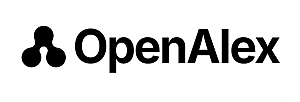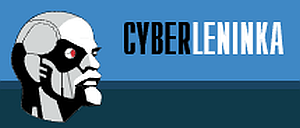On Davidson’s Master Argument
DOI:
https://doi.org/10.47850/RL.2024.5.4.39-51Keywords:
theory of action, reasons for action, causes of action, Davidson’s master argument, causal theory of action, anti-causalism, anomalous monism, explanation, rationalization.Abstract
The article discusses one of Donald Davidson’s arguments in defense of the causal approach, according to which the explanation of actions through reasons is a kind of causal explanation. Davidson insists that the qualification of certain desires and beliefs as reasons is not a sufficient condition for explaining an action. In order to really explain an action, we need to find the reason that became the real efficient cause, since one reason can plausibly explain an action, but at the same time not be its true cause. This thesis of Davidson was called the master argument and is considered in the subsequent tradition as one of the strongest arguments in favor of causalism. The article shows the weaknesses of this argument.
References
Аристотель. (2016). О движении животных. Пер. Е. В. Афонасина. Schole. Философское антиковедение и классическая традиция. Т. 10. № 2. С. 737-753. DOI: 10.21267/AQUILO.2016.10.2971.
Aristotle. (2016). On the Motion of Animals. Afonasin, E. V. (transl.). Schole. A Journal of the Centre for Ancient Philosophy and the Classical Tradition. Vol. 10. No. 2. Pp. 737-753. DOI: 10.21267/AQUILO.2016.10.2971. (In Russ.)
Витгенштейн, Л. (1994). Философские работы. Часть I. Пер. М. С. Козловой и Ю. А. Асеева. М.: Изд-во «Гнозис». 612 с.
Wittgenstein, L. (1994). Philosophical Works. Part I. Kozlova, M. S., Aseev, Yu. A. (transl.). Moscow. 612 p. (In Russ.)
Прист, С. (2000). Теории сознания. Пер. с англ. А. Ф. Грязнова. М.: Идея-Пресс; Дом интеллектуальной книги. 288 с.
Priest, S. (2000). Theories of the Mind. Grjaznov, A. F. (transl.). Moscow. 288 p. (In Russ.)
Райл, Г. (1999). Понятие сознания. Под ред. В. П. Филатова. М.: Идея-Пресс. 408 с.
Ryle, G. (1999). The Concept of Mind. Filatov, V. P. (ed.). Moscow. 408 p. (In Russ.)
Сёрль, Дж. (2004). Рациональность в действии. Пер. с англ. А. Колодия, Е. Румянцевой. М.: Прогресс-Традиция. 336 с.
Searl, J. (2004). Rationality in Action. Kolodiy, A., Rumyantseva, E. (transl.). Moscow. 336 p. (In Russ.)
Anscombe, G. E. M. (1957). Intention. Cambridge. Harvard University Press. 106 p.
Dancy, J. (2000). Practical Reality. Oxford University Press. 181 p.
Davidson, D. (1963). Actions, Reasons, and Causes. The Journal of Philosophy. Vol. 60. N 23. Pp. 685-700.
Davidson, D. (2001). Essays on Actions and Events. Oxford. 323 p.
Hieronymi, P. (2011). Reasons for Action. Proceedings of the Aristotelian Society. Pt. 3. Pp. 407-427.
Hornsby, J. (2010). Trying to Act. In O’Connor, T., Sandis, C. (eds.). A Companion to the Philosophy of Action. Wiley-Blackwell. Pp. 18-25.
Kietzmann, C. (2023). Anscombe’s and von Wright’s Non-causalist Response to Davidson’s Challenge. Philosophical Investigations. № 46 (2). Pp. 240-263.
Moore, M. S. (2010). Renewed Questions about the Causal Theory of Action. In Aguilar, J. H., Buckareff, A. A. (eds.). Causing Human Actions. New Perspectives on the Causal Theory of Action. The MIT Press. Pp. 28-43.
Sehon, S. R. (2000). An Argument against the Causal Theory of Action Explanation. Philosophy and Phenomenological Research. Vol. 60. № 1. Pp. 67-85.
Wilson, G. (1985). Davidson on Intentional Action. In LePore, E., McLaughlin, B. (eds.). Actions and Events: Essays on the Philosophy of Donald Davidson. Basil Blackwell. Pp. 29-43.
Wilson, G., Shpall, S. (2022). Action. [Online]. In Zalta, E. N., Nodelman, U. (eds.). The Stanford Encyclopedia of Philosophy Archive. Available at: https://plato.stanford.edu/archives/win2022/entries/action/ (Accessed: 10 October 2024).
Downloads
Published
How to Cite
Issue
Section
License

This work is licensed under a Creative Commons Attribution-NonCommercial-NoDerivatives 4.0 International License.
https://oc.philosophy.nsc.ru/remote.php/webdav/%D0%94%D0%BE%D0%B3%D0%BE%D0%B2%D0%BE%D1%80%20%D1%81%20%D0%B0%D0%B2%D1%82%D0%BE%D1%80%D0%BE%D0%BC%20RL-%D0%BF%D1%80%D0%B0%D0%B2.doc










